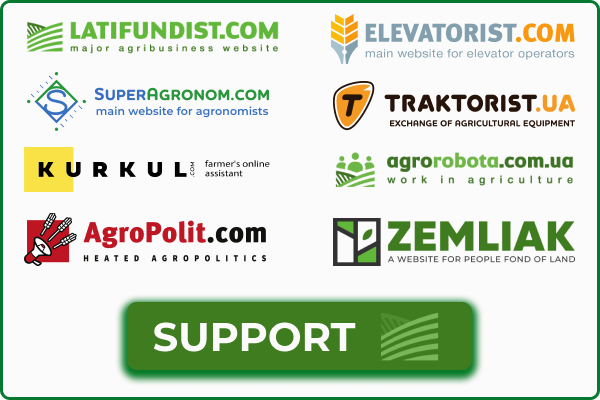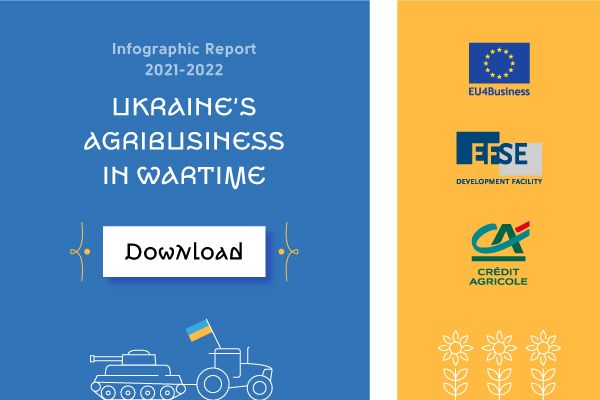Rafael Goroian: Ukrainian Grain Market Is a Mess Led by Buyers, Particularly European

Photo by: Latifundist.com
Ukrainian ports' operation has slid by 30-35% following the slowdown of vessel inspection in the "grain corridor" by the russian side, the USPA reported. But there is another problem: amid falling grain prices, traders, whose vessels were forced to wait in the Bosporus for a month, refuse to buy Ukrainian grain. They choose to buy cheaper russian or Romanian grain. Recently such a situation occurred in Prometey Group: several traders refused to fulfill the terms of their contracts.
Rafael Goroian, the owner and Chairman of the Supervisory Board of Prometey Group, explains what is currently happening in the Ukrainian market and how European buyers reveal bad examples of business behaviour, why Ukrainian exporters need to learn how to properly position themselves and bite back.
What has happened?
A few months ago, Prometey sold grain on FOB terms to several traders. One of them was one of the ABCD (a quartet of multinational grain traders – ed.). The others were Italian and French companies. Vessels that were on their way for loading had been stuck in the "grain corridor" for a month. During this time, the price of grain fell by 25-30 USD per ton. All the ships just left because traders refused to buy our grain.
Their argument was "There's a war in the country. We've been standing in line for a long time. We suspect that you don't even have grain at the terminal." Firstly, we had grain at the terminal. Secondly, the sales were on FOB. This means that the buyer has to stand in line, come to the port and pick up the cargo.

But guess what the buyer decided? That it is more profitable for him to turn around and buy cheaper grain in Romania or russia, cancel the contract with Prometey, and go to court. By doing this, buy some time because the trial will last a year. After that, ask Prometey for a discount, negotiate, and settle things.
Obviously, we will not accept such conditions. We are ready to sue grain traders in GAFTA (Grain and Feed Trade Association). We have the backing of an international law firm, and we are confident that we are right. Our losses are estimated at several million dollars. We will be ready to announce the exact amount once the lawsuits are over. In this particular case, we want to be clear that Ukrainian exporters should not be treated this way.
We are sure that French and Italian buyers will lose and will have to compensate for all the costs of the default: the differences in the price of products, logistics costs, penalties, etc. I think that after we get the court ruling, it will be hard for these traders to work in Ukraine and in the agricultural sector, and I shall do my best to make this happen.
Buyer's violation of the law
Unfortunately, the situation that we have experienced is not one of a kind in Ukraine.
Now there is chaos brought by buyers, especially the European ones. We are committed to becoming a member of the EU. This union is attractive with its economic processes, and the system of state management. But we have the impression that we are treated as a third rate.
European buyers feel that they have a higher status than we do, which means they can unilaterally change the terms of the contract. Perhaps, they think they are doing a high gesture by buying grain in a war-torn country. They are not! They only care about the high margin.
And even now there are many cases in the market of small farmers selling on their own through Reni and Izmail go into mass defaults. Why? Because the buyer finds clues in the documents and, argues that the contract is improperly drawn up, they terminate it.
Therefore, I would recommend producers who sell their own goods give it serious consideration. Do not spare money for a qualified specialist, who will help to understand the complexities of export documents.
Under no circumstances, enter into contracts by word of mouth! You may think that you know a person well and be sure of the timely payment. Trust me, there are numerous cases on the market now when growers sold their grain to acquaintances in this way and were never paid.
I can tell with all responsibility that Ukrainian exporters should not be treated this way. And I can tell my business colleagues that we have to learn to position ourselves appropriately, to bite back and even to offer our management system to the European Union.

My conclusion is that Ukrainian exporters should form their own "blacklist" of unscrupulous buyers as multinational companies did against Ukrainian agrarians in 2020.
New options for Ukrainian exporters
With the full-scale war and closed ports, every buyer is a saviour for us. One may say that we protect them, and make concessions of some kind. They take advantage of this thinking that we are lost without them. The truth is the war makes us, Ukrainian exporters, search for new markets. And not in the EU, but on other continents.
Prometey has expanded into distribution in our customers' domestic markets. We unload a Panamax in one of the ports of our buyers' countries and sell the grain in the local market, including in installments. Besides, we sell it in retail. Now we are opening our offices in these countries, building teams of specialists. We plan to partner with Arab countries.
In other words, national traders are now perfectly capable of doing the job once done by multinational companies. So, I would not recommend them to indulge in illusions that the Ukrainian exporter will not survive without them. In fact, the Ukrainian exporter is only getting stronger from such situations.
Just like Ukrainians show the world exceptional success on the battlefield, we are to prove we know how to grow grain and sell it to the world honestly and responsibly.




